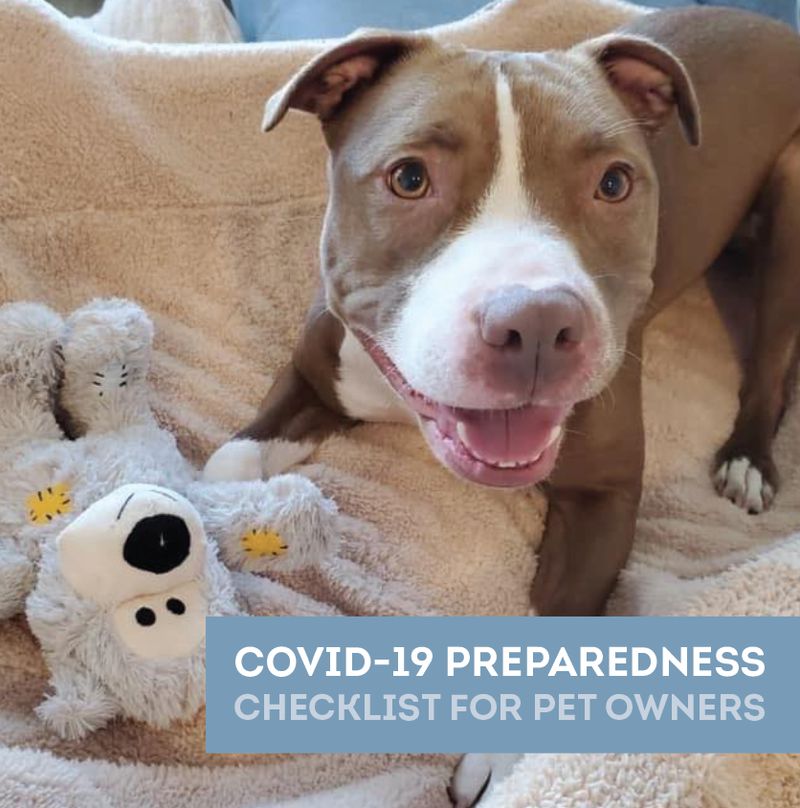
COVID-19 Preparedness: Checklist for Pet Owners
With the rise of COVID-19 in the Baltimore community, you may be wondering the best ways to protect the ones you love, including your furry family members.
The CDC recommends that, in case you fall ill and are unable to care for your pets, you create a pet preparedness kit. This kit should include key documents, food and medications, and other necessary supplies along with detailed instructions on how to take care of your pets’ daily needs to ensure that your pets are well cared for while you recover.
As you create your instructions, take a moment to think about your pet’s day-to-day life. Does your pet have a specific ritual in the morning? What time are they fed? If you have multiple pets, do they need to eat separately? Where do your pets like to sleep? If your pet is crated, how do you coax them in? Does your pet have triggers that make them anxious? How do you calm them? If they take medication, how much and when? Do you need to hide the pills in their food or administer them with a syringe? How do your pets prefer to go potty? If they go on walks, are they dog reactive? No detail is too small!
In addition to creating the kit, you should identify trusted individuals or boarding organizations that you can rely on if you get sick. Be sure to communicate with these individuals/organizations to ensure they will be able to assist you when you need it.
For specific questions regarding how COVID-19 affects you and your pet, please see this great guide from the American Veterinary Medical Association.
Key Documents
- Rabies certificate and vaccination records*
- Prescriptions
- Registration information (i.e. adoption contract or other proof of ownership)
- Descriptions (i.e. breed, color, weight, etc.) and photographs
- Microchip information**
- Contact information (i.e. your phone number and address)
*If your pet is not up to date on vaccinations, now is the time to make a vet appointment.
**If your pet is not microchipped, now is the time to have one implanted.
Food and Medications
- Non-spill food and water dishes
- Two week supply of food and water for each pet
- Feeding instructions for each pet
- Two week supply of medications
- Detailed medication instructions for each pet
- One month supply of flea, tick and heartworm preventative for each pet
Other Necessary Supplies
- Detailed instructions with your pet’s typical day
- Leashes, collars with IDs and harnesses for each pet
- Litter and litter boxes; you should have one more litter box than cat you own (i.e. three boxes for two cats)
- Favorite toys
- Pet carriers with bedding
- Pet first aid book and kit


